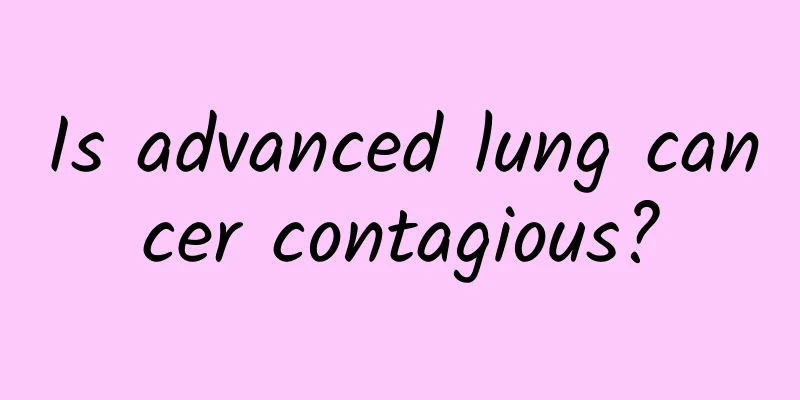Schizophrenia symptoms, these are terrible

|
There are more and more people suffering from schizophrenia in society today, and there are many types of schizophrenia. The most common manifestation of this mental illness is impaired thinking. Many people with schizophrenia will become particularly depressed in the later stages of the disease. 1. Thought association disorder It is characterized by a lack of coherence and logic in the thought association process, which is the most characteristic symptom of schizophrenia. The patient's entire conversation or writing lacks logic, the narration is not very relevant, and he cannot clearly express the meaning around the central idea of the conversation. It feels very difficult to talk to him, and people feel confused (loose thinking). There is a lack of connection between sentences and the speech is disorganized (fragmented thinking). When the patient is speaking, his associations are suddenly interrupted, his mind goes blank, and then he switches to a new topic (thinking interruption). At the same time, I feel that my thoughts are being taken away (my thoughts are being taken away). A sudden series of associations in the mind (thought cloud or compulsive thinking). Sometimes I feel that the thoughts in my mind are not my own, but imposed by the outside world, and that others are using my brain to think about problems (thought insertion). In the above cases, patients have a clear sense of involuntary feeling and are out of their own control. When thinking, the patient feels that his thoughts turn into words at the same time, which can be heard by himself and others (thoughts become sounds). Your thoughts are spread and everyone knows them (diffusion of thoughts). ) The patient's logical reasoning process is bizarre and absurd (logical perversion). Some ordinary words, actions, and symbols are given special meanings that cannot be understood by others except the patient (pathological symbolic thinking). Create characters, words or symbols and give them special meanings (neologization). 2. Thought content disorder The main manifestation is delusion. Delusion is a pathologically distorted belief that is inconsistent with objective facts, educational level, cultural background, etc., and may even be absurd and bizarre. However, the patient firmly believes in it and cannot be convinced or corrected through personal experience. Delusion is one of the most common symptoms of schizophrenia. Various delusions may occur, and some patients have very prominent delusions. In the early stages of the disease, patients may be skeptical about certain obviously irrational ideas, but as the disease progresses, they become integrated with the pathological beliefs and cannot be recognized by themselves. Delusions of association and persecution are the most common delusions. Patients feel threatened and believe without basis that someone wants to frame, destroy, murder them, follow them, monitor them, etc. (delusions of persecution). The patient feels that everything happening around him is related to him and is directed at him, and he believes that people around him are talking about him and talking about him (delusion of reference). The patient feels that his or her thoughts, emotions, behaviors, and body movements are controlled by outsiders or some external force, and are not under his or her own control (passive experience, sense of being controlled, and delusions of influence). Believing that others already know what you think and do (a sense of inner insight). Believing that one's parents are not one's biological parents (non-systematic delusion). Firmly believing that a member of the opposite sex is in love with you (erotomania). Firmly believe that your lover is unfaithful to you and is having an affair (jealousy delusion). Unfounded exaggeration of one's own abilities, status, and wealth (delusion of grandeur). A sudden onset of pathological beliefs that are unrelated to the patient's experience or real environment (primary delusion). The patient suddenly develops delusions about normal perceptual experiences (delusional perceptions). |
<<: What medicine to take to treat nasopharyngitis
>>: What are the conservative treatments for subdural hematoma?
Recommend
How to quit smoking with betel nut most effectively
Using betel nut to quit smoking is a smoking cess...
The three most common symptoms of insomnia caused by qi deficiency
For people with qi deficiency, they often suffer ...
What to do if a child has toothache and swollen face
Children's resistance is not as strong as tha...
How to overcome shyness
The psychology of shyness is quite common in life...
Foods not to eat when you have a sore throat
During the period of throat inflammation, you sho...
At what age does puberty end?
It is said that acne is a sign of youth and a uni...
What are the functions of silver fiber?
In recent years, the medical community has begun ...
What to do if your feet are itchy and smelly
Although itchy and smelly feet will not cause any...
How to Get Rid of Acne
Acne, also known as pimples, is a very common ski...
What causes acne on the left side of the face?
Girls who love beauty are often troubled by acne ...
How is myasthenia gravis treated? 3 ways to help you
The harm of myasthenia gravis to patients is imme...
The efficacy and function of seaweed polysaccharides
Seaweed polysaccharides can regulate people's...
How to follow the 12-hour health regimen in Huangdi Neijing?
"The 12-Hour Health Preservation Method from...
What causes sweating on the head during exercise?
The reason why so many people like sports is not ...
Moxibustion in the dog days of summer has miraculous effects
The dog days are the hottest season of the year. ...









